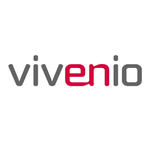Description

Bookwhen

vivenio
Comprehensive Overview: Bookwhen vs vivenio
Let's delve into a comprehensive overview of Bookwhen and Vivenio, covering their primary functions, target markets, market share, user base, and differentiating factors.
Bookwhen
a) Primary Functions and Target Markets:
-
Primary Functions: Bookwhen is an online booking and scheduling software designed to simplify the process of event registration and management. The platform allows users to create and customize booking pages, manage reservations, handle payments, and communicate with attendees. It offers features like waitlists, discount codes, attendance tracking, and integration with third-party applications.
-
Target Markets: Bookwhen primarily targets small to medium-sized businesses across various sectors such as fitness (yoga, pilates, dance), workshops, training courses, educational institutions, community events, and any organization requiring a streamlined booking process.
b) Market Share and User Base:
- Market Share and User Base: Bookwhen serves a niche market focusing on small to mid-sized event organizers and service providers. While precise market share data might not be publicly available, Bookwhen has a strong presence in the UK and other English-speaking countries. The user base mainly consists of small businesses and individual instructors who seek an intuitive and cost-effective scheduling solution.
c) Key Differentiating Factors:
- User-Friendly Interface: Bookwhen is known for its straightforward and user-friendly interface, which makes it accessible to users with varying levels of technical expertise.
- Flexible Pricing: With flexible pricing plans, Bookwhen caters to small businesses with tighter budgets.
- Diverse Use Cases: The platform supports a wide range of events, from fitness classes to professional workshops, making it versatile in its application.
- Strong Customer Support: Bookwhen is lauded for its responsive customer support, including help guides and personal assistance.
Vivenio
a) Primary Functions and Target Markets:
-
Primary Functions: Vivenio is a comprehensive event management platform designed to handle all aspects of event planning and organization. It provides tools for event registration, ticketing, attendee management, marketing, and analytics. Vivenio offers features like customizable event pages, real-time reporting, badge printing, and mobile app support.
-
Target Markets: Vivenio targets larger-scale events and organizations, including corporate events, conferences, trade shows, festivals, and large-scale public events. It serves event organizers looking for robust and integrated solutions to manage complex events.
b) Market Share and User Base:
- Market Share and User Base: As an enterprise-focused platform, Vivenio likely commands a share of the market dedicated to larger and more complex events. Its user base comprises event management professionals and large organizations seeking comprehensive event solutions. Market penetration might be more significant in countries or regions with active conference and trade show activities.
c) Key Differentiating Factors:
- Robust Features: Vivenio offers a wider array of features tailored to handling large-scale and complex events, including advanced analytics and reporting capabilities.
- Scalability: The platform is designed to scale effectively with the size and complexity of events, making it suitable for enterprise-level clients.
- Integration Capabilities: Vivenio provides seamless integration with other enterprise solutions to enhance productivity and streamline event management processes.
- Customization and Brand Experience: It allows extensive customization for brand-specific experiences, essential for large corporations and branding-focused events.
Comparative Overview
Overall Market Share and User Base:
- Bookwhen caters to a smaller market segment focused on simplicity and affordability, often leaving it with a niche but dedicated user base predominantly within the UK and similar markets.
- Vivenio, aiming at the complex needs of larger events, likely enjoys a particular share of the corporate event industry, appealing to those requiring comprehensive features and customization.
Key Differentiating Factors:
- Complexity and Depth: Bookwhen focuses on simplicity and ease of use, whereas Vivenio emphasizes advanced features and depth suitable for large events.
- Scalability and Pricing: Bookwhen offers more affordable solutions for small-scale needs, while Vivenio's scalable solutions come at a premium tailored for bigger clients.
- Market Positioning: Bookwhen is preferred by small and medium-sized businesses, whereas Vivenio serves enterprise-level clientele.
In conclusion, Bookwhen and Vivenio serve distinct market segments with different needs, from small business event organizers to large corporate event planners. Each product's differentiation in terms of features, user base, and pricing structures highlights its unique positioning within the event management software landscape.
Contact Info

Year founded :
2014
+44 186 592 2123
Not Available
United Kingdom
http://www.linkedin.com/company/bookwhen-ltd

Year founded :
2017
+34 911 98 80 50
Not Available
Spain
http://www.linkedin.com/company/vivenio
Feature Similarity Breakdown: Bookwhen, vivenio
To provide a detailed feature similarity breakdown for Bookwhen and Vivenio, we will consider the core features, user interface comparisons, and any unique features that distinguish these products.
a) Core Features in Common
Both Bookwhen and Vivenio are platforms designed to facilitate event management and ticketing. Here are some of the core features they typically share:
-
Event Creation and Management: Both platforms allow users to create and manage events, providing options for customizing event details such as date, time, location, and description.
-
Online Registration and Ticketing: They offer online ticket sales and registration management, supporting various ticket types (e.g., single entry, group, VIP).
-
Payment Processing: Integration with payment gateways to process payments securely is a common feature. This often includes support for multiple currencies and payment methods.
-
Attendee Management: Features for managing attendee information, communicating with attendees, and checking in participants at the event.
-
Reporting and Analytics: Both provide analytical tools to track sales, registrations, and demographics to better understand event performance.
-
Customization Options: Ability to customize the event page, emails, and branding to fit the organizer's identity.
-
Multiple Event Scheduling: Handling multiple events concurrently with functionalities for time zone management and scheduling.
b) User Interface Comparison
While user interfaces can frequently change with updates, generally, the usability and design philosophies can be compared:
-
Bookwhen: Known for its user-friendly and straightforward interface, Bookwhen is geared towards small to medium-sized events, providing a simple setup process. The UI tends to lean towards being minimalistic with easy navigation panels, making it accessible even for users with limited technical experience.
-
Vivenio: Often perceived as having a more robust and slightly more complex interface, Vivenio is sometimes aimed at larger, more complex events with a need for more in-depth functionalities. The design might be more feature-rich upfront, providing extensive functionality that can cater to corporate and large-scale event managers.
c) Unique Features
Each platform often introduces features that cater to specific market needs or technological advancements:
-
Bookwhen:
- Flexible Pricing and Discount Codes: Bookwhen is noted for its flexibility in ticket pricing strategies, including group discounts and promotional codes which are very intuitive for the user to apply.
- Integration with WordPress: Seamless integration for website embedding, especially beneficial for users operating with WordPress-based websites.
-
Vivenio:
- Advanced Customization and Branding: Offers extensive customization options that allow for advanced branding capabilities, useful for maintaining a consistent brand image across all event touchpoints.
- Corporate-oriented Features: Includes features like CRM integration, which is essential for large organizations that require detailed tracking and follow-up after events.
In summary, while both Bookwhen and Vivenio share several core functionalities essential for event management, differences often lie in their user interface design targeted demographics, and unique features, with Bookwhen focusing on simplicity and ease of use, and Vivenio offering more extensive customizations and catering to more complex event needs.
Features

Not Available

Not Available
Best Fit Use Cases: Bookwhen, vivenio
Certainly! Let's explore the best fit use cases for both Bookwhen and Vivenio:
Bookwhen
a) Best Fit Use Cases for Bookwhen:
Bookwhen is a versatile booking and scheduling platform that is particularly well-suited for:
-
Small to Medium Enterprises (SMEs): Ideal for businesses that require a simple, cost-effective scheduling solution without the need for complex integrations. This includes studios offering fitness classes, workshops, and training sessions.
-
Education and Workshops: Organizations running courses, workshops, or training events often find Bookwhen beneficial due to its easy course management and booking features.
-
Community Events and Small Venues: Community centers, sports clubs, and non-profits can leverage Bookwhen to manage bookings for events, meetings, and recreational activities.
-
Healthcare and Wellness: Small clinics and wellness practitioners, such as yoga instructors and physiotherapists, use Bookwhen for appointment bookings and class reservations.
d) Industry Verticals and Company Sizes for Bookwhen:
Bookwhen caters mainly to small and medium businesses in the wellness, education, fitness, and community-focused sectors. Due to its focus on simplicity and affordability, it is a great fit for organizations that operate at a local or regional scale, including freelancers and independent instructors who need a straightforward system to manage appointments and class registrations.
Vivenio
b) Preferred Scenarios for Vivenio:
Vivenio is primarily designed for managing complex events and is popular among:
-
Large Conferences and Exhibitions: Its robust feature set allows for efficient management of multi-day conferences, trade shows, and exhibitions, engaging audiences with diverse content and networking needs.
-
Corporations with Comprehensive Event Needs: Companies that host frequent large-scale meetings, corporate summits, or client events benefit from Vivenio’s ability to handle end-to-end event management.
-
Event Planners and Agencies: Agencies specializing in organizing detailed and multifaceted events appreciate Vivenio’s comprehensive tools for registration, attendee management, and engagement.
-
Universities and Academic Institutions: For graduation ceremonies, symposiums, or academic conferences requiring intricate planning and attendee engagement, Vivenio offers a suitable platform.
d) Industry Verticals and Company Sizes for Vivenio:
Vivenio caters to larger corporations, event planning agencies, and organizations within the academic sector that handle sophisticated, large-scale events. It is designed for entities that require advanced capabilities in terms of event logistics, attendee management, and data analytics, supporting robust operations across corporate, educational, and professional event landscapes.
In summary, Bookwhen is optimal for smaller scale operations and straightforward booking needs, making it accessible for local businesses and individual practitioners. In contrast, Vivenio is best for larger organizations requiring a comprehensive platform to manage complex and large-scale events with multiple stakeholders.
Pricing

Pricing Not Available

Pricing Not Available
Metrics History
Metrics History
Comparing teamSize across companies
Conclusion & Final Verdict: Bookwhen vs vivenio
When evaluating Bookwhen and Vivenio, it is essential to consider various factors such as pricing, features, ease of use, customer support, and integration capabilities. Here's a structured analysis to help determine which product offers better overall value and to aid users in deciding between the two platforms.
a) Overall Value:
Bookwhen:
- Pricing and Affordability: Bookwhen generally offers competitive pricing with tiered plans that cater to small businesses, non-profits, and larger organizations. Its flexibility in pricing makes it accessible to a wider range of users.
- Feature Set: Bookwhen provides a robust set of features suited for event management, including booking management, customer communication, and customizable booking pages.
- Ease of Use: Known for its user-friendly interface, it allows users to set up and manage events efficiently with minimal onboarding time required.
Vivenio:
- Pricing and Affordability: Vivenio, typically priced towards the higher end, might be more suitable for medium to large enterprises looking for comprehensive event management solutions.
- Feature Set: Vivenio offers a wide array of features that include advanced analytics, marketing tools, and integration with CRM systems, which is ideal for businesses looking for an all-in-one solution.
- Ease of Use: While comprehensive, the platform may have a steeper learning curve due to its extensive capabilities.
Conclusion: For organizations seeking value through comprehensive features and advanced capabilities, Vivenio might offer better overall value. Meanwhile, Bookwhen is likely the better choice for small to medium-sized entities prioritizing affordability and simplicity.
b) Pros and Cons:
Bookwhen Pros:
- Cost-effective pricing and scalable plans.
- Intuitive and easy-to-use interface.
- Strong support for small to mid-sized events.
- Customizable booking pages and simple event management tools.
Bookwhen Cons:
- May lack some advanced features required by larger enterprises.
- Limited integrations compared to more comprehensive platforms.
Vivenio Pros:
- Extensive feature set suitable for large-scale operations.
- Advanced analytics and marketing tools.
- Seamless integrations with other enterprise tools like CRM systems.
- Designed to handle complex event management needs.
Vivenio Cons:
- Higher price point may be prohibitive for smaller organizations.
- More complex interface with a steeper learning curve.
- Targeted more towards larger businesses, potentially over-kill for smaller events.
c) Recommendations:
-
Small to Medium Businesses and Non-profits: If ease of use and budget are primary concerns, Bookwhen is an ideal choice. It allows smaller teams to manage events effectively without over-investing in unneeded functionalities.
-
Large Enterprises and Complex Event Needs: For users who require advanced functionalities and are willing to invest time and resources into learning a comprehensive system, Vivenio is the recommended choice. Its robust integration options and analytics capabilities can offer essential insights for large-scale operations.
-
Trial and Evaluation: Both platforms offer trials or demos. Users should take advantage of these offerings to thoroughly test each system's features and usability specific to their organizational needs before making a final decision.
Overall, the decision should be based on the specific needs and resources of the business or individual, considering both current requirements and future scalability.
Add to compare
Add similar companies



